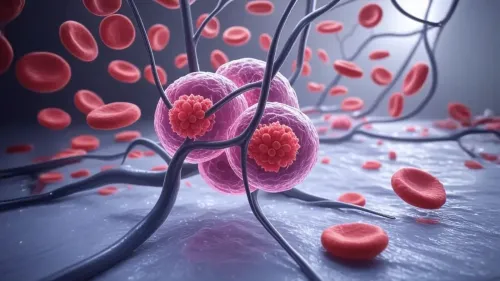Could Weight Loss Drugs Delay Alcohol's Effects and Aid in Addiction Recovery?

Synopsis
Key Takeaways
- GLP-1 agonists may reduce alcohol consumption.
- These medications slow the absorption of alcohol into the bloodstream.
- Participants taking these drugs reported feeling less intoxicated.
- The study offers new hope for addiction recovery.
- Research highlights a different mechanism compared to traditional alcohol reduction medications.
New Delhi, Oct 15 (NationPress) Recent research suggests that well-known medications for managing diabetes and aiding weight loss, such as Ozempic and Wegovy, may also play a role in curbing alcohol consumption. The investigation, conducted by experts at Virginia Tech in the US, revealed that GLP-1 agonists can slow the rate at which alcohol is absorbed into the bloodstream, thereby diminishing its effects on the brain.
According to Alex DiFeliceantonio, Assistant Professor at the university's Fralin Biomedical Research Institute, “Individuals who consume alcohol understand the difference between sipping a glass of wine and quickly downing a shot of whiskey.”
While both contain 0.6 ounces of alcohol, the shot leads to a swift spike in blood-alcohol levels, affecting how the body processes alcohol.
“Why is this significant? Medications that act quickly may have a greater potential for abuse,” DiFeliceantonio noted. “They can have a distinct effect on the brain. If GLP-1s slow down the absorption of alcohol, they might help individuals consume less,” he further explained.
In a preliminary study with 20 participants, the research team found that even when consuming similar amounts of alcohol aimed at raising breath alcohol levels to around 0.08 percent, the increase was more gradual among those taking semaglutide, tirzepatide, or liraglutide.
This group also reported feeling less intoxicated based on subjective evaluations.
The researchers pointed out that while other medications, like naltrexone and acamprosate, target the central nervous system to help reduce alcohol consumption, GLP-1s utilize a different method to suppress intake.
The study concluded that these drugs slow gastric emptying, which leads to a slower increase in blood alcohol levels. This research was published in the journal Scientific Reports.
The researchers expressed, “The potential to provide new hope to those battling addiction is what makes this discovery so impactful.”










